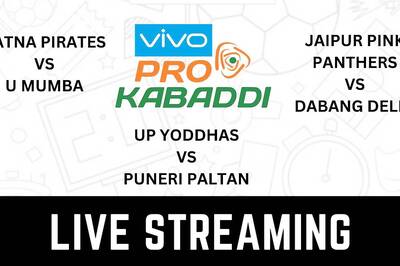
views
While visiting a government school in Punjab's Tarn Taran District, strolling across the main corridor I chanced upon the state's drug awareness initiative for youngsters: the‘Buddy’ programme. On further enquiry about it from students, teachers and even the principal, I found out that the exercise was limited to poster-making and one free period utilisation on Saturdays. The purpose of the programme, raising drug awareness among students through peer review, had somehow failed to take root. Perhaps purely because it became another syllabus-oriented exercise.
Drug abuse has been Punjab’s bane and burden. The state's Congress government has made a number of strides over the last three years in a bid to counter the menace. But it seems that hasn’t been enough. The intent has been visible and alive, given that this fight against drugs was one of the founding administrative promises of the incumbent government, for which even a film conceptualised by activist and documentary maker Sadhavi Khosla was released in Amritsar by Congress leader Rahul Gandhi and Punjab chief minister Captain Amarinder Singh.
So, an article on the issue by Suresh Kumar, chief principal secretary to the Punjab CM, pushed me to write this piece, the point of which is to highlight what more can be done to add to the fight against drugs so that we are actually in a position to win it. I say more, because steps with the right intent have been taken by Punjab government towards tackling the menace, starting with the constitution of a special task force, framing of the 'enforcement, de-addiction, prevention (EDP)' model and its subsequent programmes such as Drug Abuse Prevention Officers (DAPO) and ‘Buddy’ ( whose tagline ‘Tu Mera Buddy’ and its execution on social media platforms was done by me and my company DesignBoxed). Speaking of the EDP model, it has been one of the Punjab government's most remarkable strategies, which deals with drug abuse on three comprehensive levels as the name suggests. So much so that this same model has been adopted by neighbouring regions such as Jammu and Kashmir, Himachal Pradesh and Haryana, where the drug problem is not as rampant but picking up after the tightening of noose in Punjab. However, within Punjab, this model has not penetrated the social discourse, as the implementation has not matched the policy. And due to this, the strategy has not paid off socially or politically. Therefore, it is imperative that this model is creatively presented, ensuring public involvement, so as to popularise it.
This is also underlines the fact that merely establishing policies and programmes is not going to make any difference to the fight. The entire government machinery needs to pack a punch in terms of intent and implementation: to aggressively counter this challenge. This fight needs to get out of administrative quarters and should come to each and every household, and for that the onus is on the government to make its programmes unquestionably interactive and public participative.
The 'Buddy' programme was the largest initiative of its kind undertaken at such a grand scale. But sporadic advertising in newspapers is not the way forward to implement such a campaign.
Contemporary issues featuring the young generation need to be tackled with contemporary methods. Although this programme targets students in schools, colleges and universities to spread awareness against drug use through establishment of peer groups, the implementation should not just be restricted through educational institutions. Social media platforms such as TikTok, Snapchat and Instagram should be utilised to draw in youngsters to truly connect with them. Simply speaking to them in the language they understand will show results.
The other initiative on the Punjab government's part, the DAPO programme, was put into practice by involving only government officials to help in the establishment of 'drug-free mohallas'. But merely putting the onus on government officials could not have brought desired results, due to obvious work commitments of the nature of their jobs. This leaves a glaring gap in terms of implementation, which can be suitably filled by involving the civil society and private organisations. This will help in keeping the momentum alive and making every citizen a soldier in this battle against drugs. Another important aspect of the implementation of these programmes, is that it should be done on multiples levels, including making comprehensive use of social media, digital platforms and on the ground as well. Although it is primarily the government’s responsibility, but private enterprises should also be involved, apart from roping in professional help and not just leaving the job to the bureaucracy.
By taking the implementation on multiple platforms, the Punjab government can ensure that its exemplary initiatives such as Out Patient Opioid Assisted Treatment (OOAT) centres are spoken about, advertised well, so that they reach the target audience, helping the public avail the benefits of these undertakings.
Social media campaigning and its outreach initiatives such as ‘Coffee with Captain’ and ‘Main Captain De Naal (I'm with Captain)’ became the talking points of the ruling party's win in the previous assembly election, and if the same modules are put in practice for the fight against drugs, desired results can be achieved.
To combat the drug menace in the state, the Punjab government has shown intent in taking the daunting first steps in terms of structuring the action, and also devising programmes, which are more theoretical than pragmatic. Firstly, this is no longer a small-scale battle; this is an outright war to save the future of the state. The stakes are high, and so preparations must match the intent. Secondly, the government must go all out in terms of its action plan, involving people on the largest possible scale and roping in professional expertise, without hesitation. Then only we can expect to win the war; otherwise we are just prolonging the decimation.
(The author is a political strategist and director at DesignBoxed, working with Punjab's special task force against drugs since its inception. Views are personal)




















Comments
0 comment